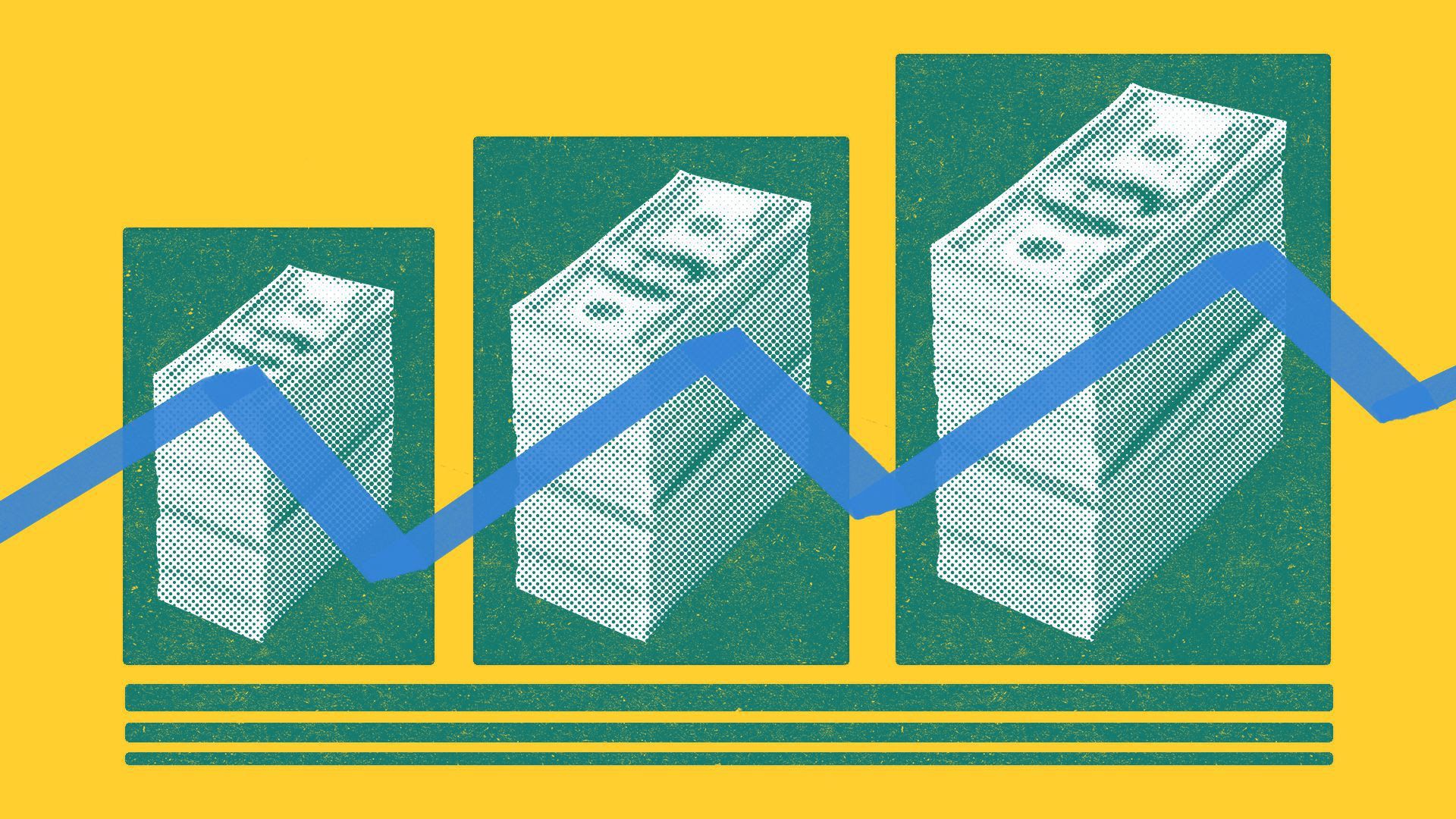The virtues of slow and steady economic growth
Add Axios as your preferred source to
see more of our stories on Google.

Illustration: Brendan Lynch/Axios
The expansion of the 2010s was way too slow. That is the embedded conventional wisdom of economic thinkers across the ideological spectrum, including those with different ideas about how it could have been better.
Driving the news: But the experience of the last year shows that there are also hazards in an expansion that moves too fast.
Why it matters: Inevitably there will be another recession. When it comes, policymakers will need to wrestle with what was frustrating about both the early 2010s and early 2020s to try to avoid repeating either set of errors.
Flashback: The recession that accompanied the global financial crisis technically ended in mid-2009. Yet per-capita GDP did not reach its pre-recession high until four years later. The unemployment rate didn't reach its pre-recession low until March 2017!
- The reason, in a commonly held narrative, was inadequate fiscal stimulus early on in the recovery, combined with the Federal Reserve's persistently premature withdrawal of monetary stimulus.
It was this recent history that shaped the response of both fiscal and monetary policymakers to the pandemic-induced recession.
- The Obama fiscal stimulus passed in early 2009 was $787 billion and enacted at a time the economy was still in free-fall. The funds would turn out to be far short of the "output gap" between the economy's potential and its actual performance over the ensuing years.
- By contrast, the American Rescue Plan passed one year ago was $1.9 trillion, and came on top of a $900 billion pandemic rescue enacted three months earlier. Those numbers were far above plausible estimates of the 2021 output gap, and came on the heels of multi-trillion dollar legislation to fill the output gap in 2020.
The big picture: This really has been an extraordinarily rapid recovery in growth and the job market. It took one year to return to pre-recession GDP, not four. The unemployment rate is nearly back to pre-pandemic level.
- But what we're learning the hard way is that when the economy goes into a deep downturn, if you try to turn it back on too quickly, things break.
That is the common thread among a range of current economic woes, including shortages of workers and physical goods, and high inflation.
- Just maybe, for example, in a more gradual recovery, automakers would have been able to rebuild their capacity along with demand, and there wouldn't be such extreme shortages and price spikes for new and used cars.
- Employers might still be hiring at a rapid clip in this more steady-eddy recovery, but not so rapidly as to outstrip the number of people ready to clock in.
Public opinion data shows the degree of discontent in spite of the rapid recovery.
- In Gallup polling, 42% of Americans last month (before the invasion of Ukraine) rated economic conditions as poor, about the same as in April 2012 (40%).
Depending on the exact question asked, Americans seem to feel things are worse than they did during the too-slow economy a decade ago.
- One example: In April 2010, 49% of Americans said they thought economic conditions were getting better in a Gallup poll. At the time, the unemployment rate was 9.9% and inflation over the previous 12 months was 2.2%. The economy grew at a 2% rate the preceding quarter.
- In February 2022, 26% thought conditions were improving, at a time of 3.8% unemployment and 7.9% inflation. The economy grew at a 7% rate last quarter.
Thought bubble: Suppose policymakers had really stepped on the economic policy gas in 2009 and 2010 — an Obama stimulus of $3 trillion, for example, and open-ended quantitative easing from the Fed sooner.
- Maybe it would have created a happy-days-are-here-again economic boom. Or maybe it would have generated similar growing pains, inflation, and negative public opinion that we're experiencing now.
The bottom line: The goal of economic policy is to deliver the results that citizens find satisfying. The experience of the last few months suggests that people dislike an economy running too hot as much as they hate it when things run too cold.
